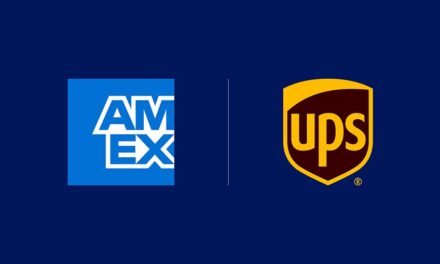
DHL escapes fine as Europe busts global freight cartels
The European Commission has handed out EUR 169m in fines to 14 international freight forwarders – including UPS, Kuehne + Nagel and Deutsche Bahn – for running a series of “price-fixing” cartels. Deutsche Post and its DHL subsidiaries escaped all penalties for being involved in the activities occurring from 2002 to 2007, as a reward for tipping the European authorities off to the actions of its cartel partners.
Five other members of the four cartels also received reductions in their fines from 5% to 50% depending on the level of their cooperation in the Commission’s investigation.
Following several years of antitrust proceedings, the Commission said today that the freight forwarding groups were coordinating their prices and surcharges, even using code names to conceal their collusion.
This included a “Gardening Club” in which price fixing conversations used the names of vegetables like asparagus and baby courgettes as code words, said the Commission.
The Commission’s decision is open for a possible appeal from one or more of the companies involved.
Among the biggest fines, Kuhne + Nagel and its subsidiaries were handed a EUR 53.7m penalty for involvement in all four cartels, Swiss firm Panalpina received a EUR 46.5m fine for its involvement in three of the cartels, and Deutsche Bahn and its units received a EUR 32.9m fine for its membership of the four cartels.
Global integrator UPS saw its subsidiaries handed a combined EUR 9.8m fine for involvement in three of the cartels.
Joaquín Almunia, the Commission’s vice president for competition policy, said cartels like those of the freight forwarders concerned were placing a “hidden tax” on the European economy.
“These cartels affected individuals and companies shipping goods on important trade lanes,” he said. “Many European exporters and consumers of imported goods may have been harmed as a result. Companies should be aware that crossing the line and colluding on prices comes at a high price, as today’s decision illustrates.”
Cartels
Two of the cartels busted by the Commission involved the freight forwarders deciding between them to set an industry-wide surcharge to cover costs involved in new electronic export customs reporting systems in the UK and US.
Another of the cartels involved a group of freight forwarders colluding to counter currency changes between the US dollar and the Chinese renminbi (RMB) by switching all their contracts en masse from USD to RMB, or adding a surcharge where this wasn’t possible.
A fourth cartel involved a series of “Breakfast Meetings” in Hong Kong in which freight forwarders agreed to set a cartel-wide surcharge on their customers for shipping items between China/Hong Kong and Europe the run-up to Christmas, generally from September to December.
Among the companies that cooperated with the Commission’s investigation, Deutsche Post DHL’s units received a 100% reduction in their fines for their whistleblowing status.
CEVA – the Netherlands-based former logistics division of TNT – received a 50% cut in its fines for co-operating, while Deutsche Bahn and its Schenker unit received fine reductions of between 20-2%% and Kuwait-based Agility Logistics received fine reductions of 25-30%.
Appeal?
Companies named in the Commission’s decision today said they would consider the full details of the decision before deciding on their response.
Kuhne + Nagel, the biggest fine recipient, said today it has entered into a plea bargain with the US Department of Justice relating to similar activities it was involved in within the United States, agreeing a $9.8m fine.
Karl Gernandt, the chairman of the Switzerland-based company, said the firm was considering an appeal against some aspects of the case, including its belief that its co-operation in the investigation “was not adequately acknowledged”.
He claimed: “We are of the opinion that the Commission has not correctly investigated the facts and the participation of Kuehne + Nagel and has drawn significantly incorrect factual and legal conclusions.”
Panalpina insisted its cited activities in the case had comprised an exchange of information in “very limited periods of time prior to 2008”, and also revealed that it had struck a deal with US authorities covering activities related to US trade lanes, along with similar deals with antitrust agencies in New Zealand, Canada and Australia.
It said in a statement today it would analyse the Commission decision before deciding whether to appeal it.
The European Commission said today that the companies involved in the price-fixing activities were potentially now open to legal action from any customers involved.
“Any person or firm affected by anti-competitive behaviour as described in this case may bring the matter before the courts of the Member States and seek damages,” it said, adding that its decision could be taken as “binding proof” that the illegal behaviour took place.
“Even though the Commission has fined the companies concerned, damages may be awarded without these being reduced on account of the Commission fine,” said the Commission.












